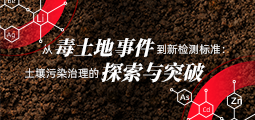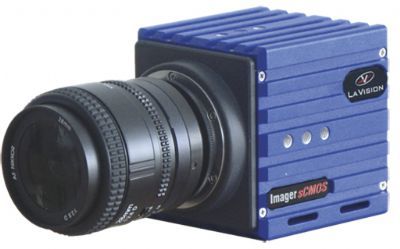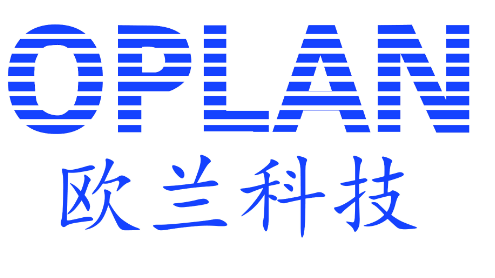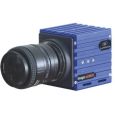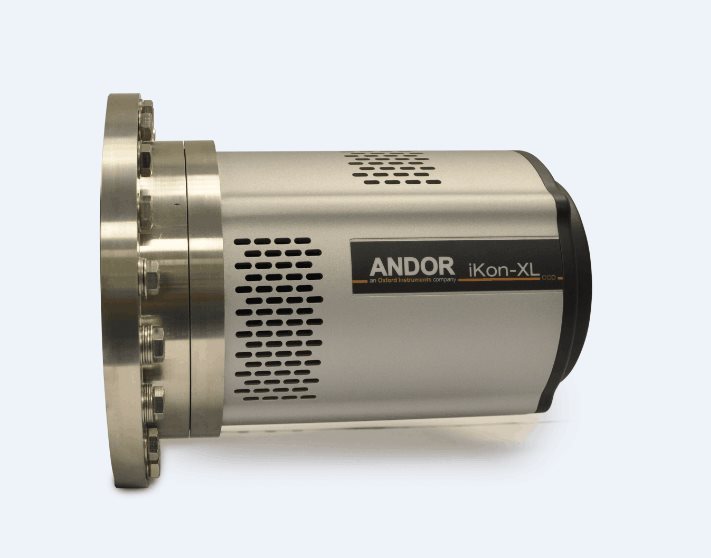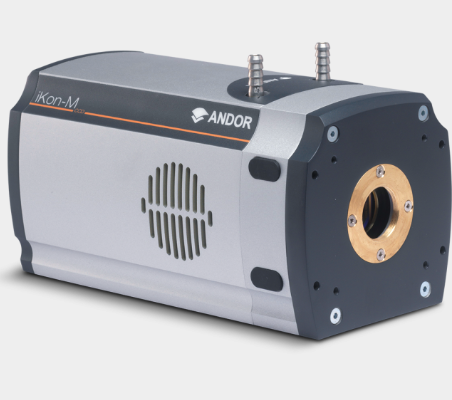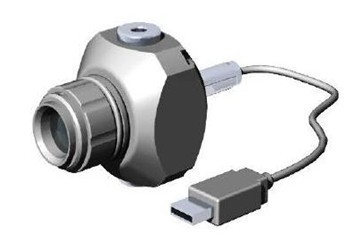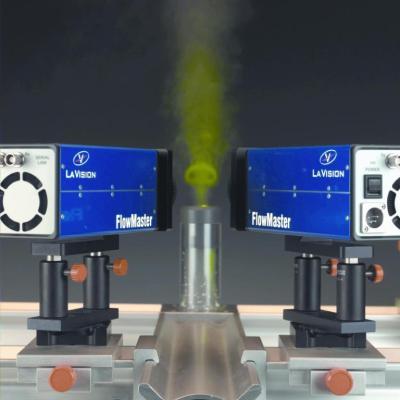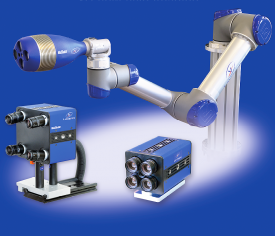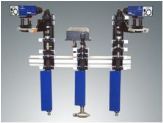方案详情
文
利用最新的厚片光层析PIV原理,测量立体空间中全部的三维速度梯度张量。这对湍流研究是非常重要的。这里的层析PIV使用了三相机成像系统。
方案详情

13"Int. Symp on Appl. Laser Techniques to Fluid Mechanics, Lisbon, Portugal, June 26-29, 200613.1 Fat-sheet PIV with computation of full 3D-strain tensor using tomographic reconstruction Bernhard Wieneke , Simon Taylor 1: LaVision GmbH, Gottingen, Germany, bwieneke@lavision.de 2: Loughborough University, UK, simon.taylor@web.de Keywords: tomographic-PIV,3D-velocity gradient tensor, Stereo-PIV A new technique (fat-sheet ‘Tomo-PIV’) ispresented to measure instantaneously the full 3D-velocitygradient tensor in a light sheet plane, which is an importantquantity e.g. for turbulent research. So far this tensor hasbeen measured by dual-plane Stereo-PIV, fast scanning PIV(only for slow flows), and with less spatial resolution by 3D-PTV and digital holographic PIV. The experimental setup ofTomo-PIV is similar to Stereo-PIV but using three camerasand a somewhat thicker sheet. 3D-straintensorusinggaathicker lighttsheet. Usingsynthetically generated images the out-of-plane gradients aremeasured within 5-10%, for real images within 10-20%.This is similar to what has been reported for dual-planeStereo-PIV requiring 4 cameras and two double-pulse lasers,where the errors depend strongly on accurate laser sheetprofile and position determination. Firsitt tlthe1intensitiess offallvoxels within the light sheet arereconstructed using a MARTtomographic reconstructionalgorithm (Elsinga et.al. 2005).Then the volume is split intotwo parts, z<0 and z> 0, andfor each part a three-dimensional cross-correlation isdone to compute two planes of3C-vectorsand subsequentlyall components oftthevelocity gradient tensor. Firstthe accuracy of the proposedmethod computingg onlyasingle vector plane is comparedto standard Stereo-PIV usingsynthetic and real data. It isquantified ]how theesspatial resolution and accuracy of Stereo-PIV islimited by the laser sheet thickness andin-plane and out-of-plane flow gradientsdue to non-identicalinterrogationvolumes for both cameras. Tomo-PIV does not suffer from thislimitation, but has other error sourcesmainly from imperfect reconstructiondue to optical defects. For synthetic dataTomo-PIV has less errors and betterspatial resolution thanStereo-PIVespecially for thicker light sheet needede.g. for cross-flow measurements. Forrealimages Stereo-PIVwas labout afactor of 2 better in 10Wgradientregions. Then it is shown for synthetic and realdata how Tomo-PIV can compute twoclosely-spaced vectors fields and the Fig. 1. Computation of dual-plane vector fields by fat-sheet Tomo-PIV. Comparison between 2D2C-, 2D3C-, and Tomo-PlV Fig. 2. Reduction in measured amplitude as a function of wavelength L and lightsheet thickness d for 2D-PIV (green lines), Stereo-PIV (blue), and Tomo-PIV (red).
确定
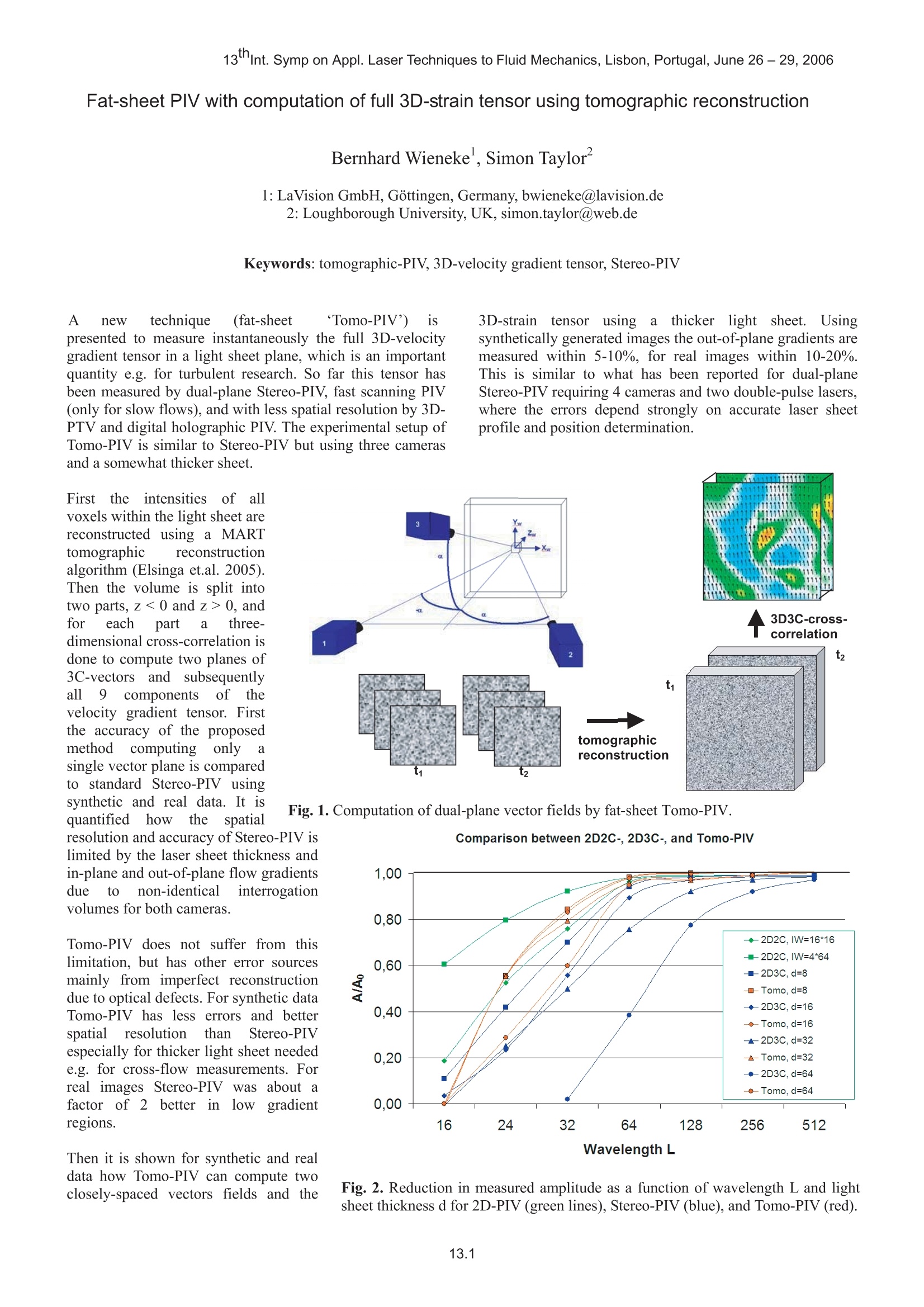
还剩1页未读,是否继续阅读?
北京欧兰科技发展有限公司为您提供《流体中速度矢量场,应力,应力张量检测方案(CCD相机)》,该方案主要用于其他中速度矢量场,应力,应力张量检测,参考标准--,《流体中速度矢量场,应力,应力张量检测方案(CCD相机)》用到的仪器有Imager sCMOS PIV相机、体视层析粒子成像测速系统(Tomo-PIV)
推荐专场
相关方案
更多
该厂商其他方案
更多
